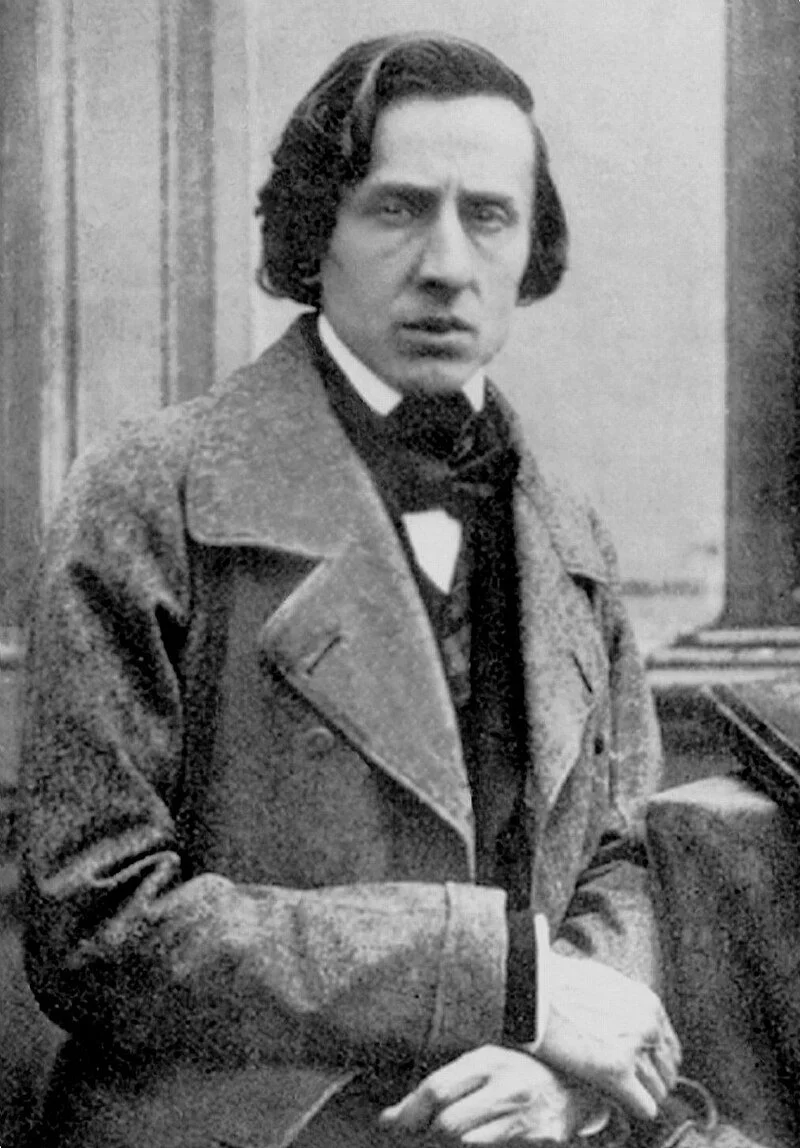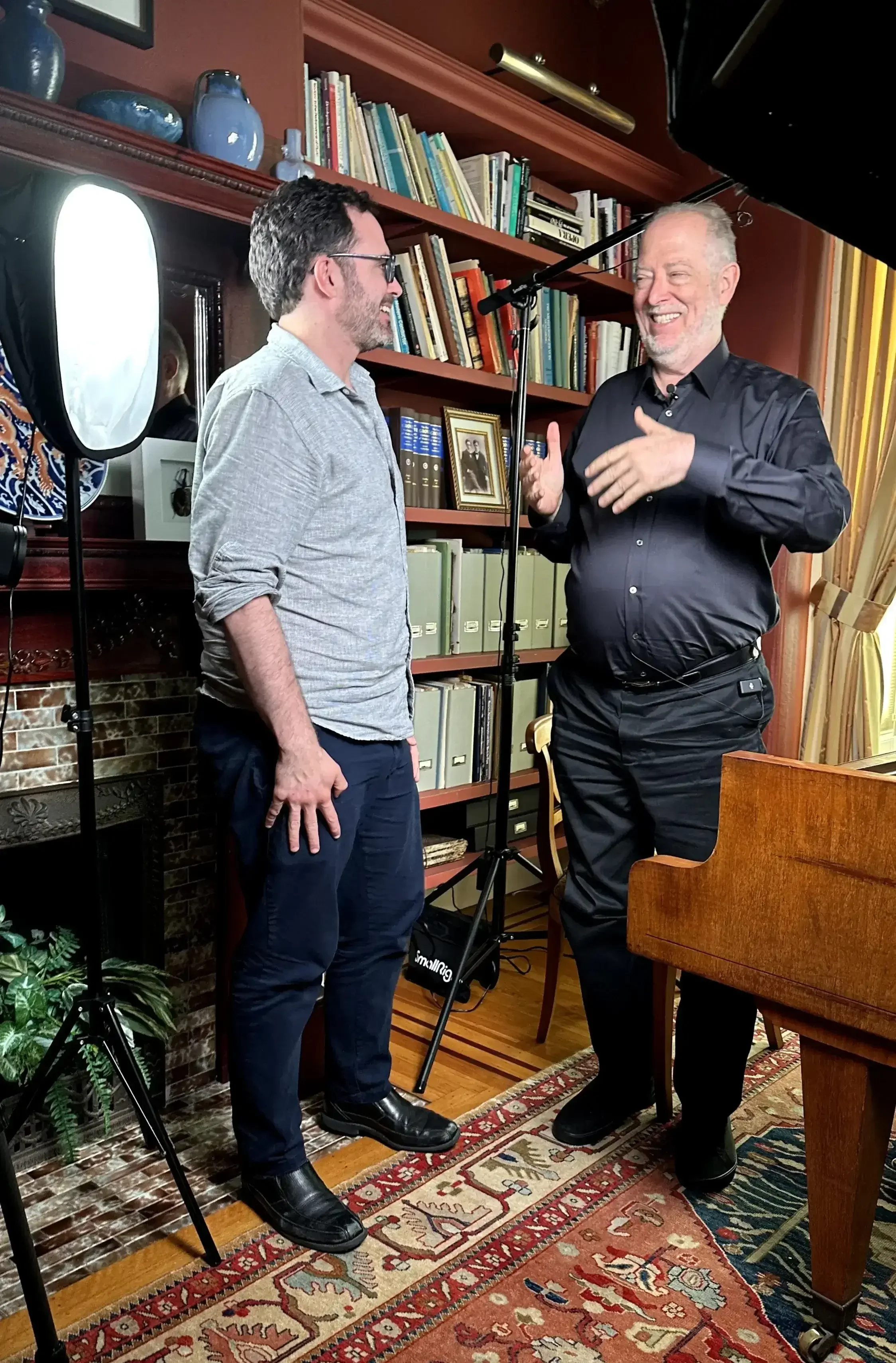A Note from Alan Walker - Chopin's Biographer
THE TIMELESSNESS OF CHOPIN
I would like to make an assertion that I cannot prove but am certain is true. Within a 20-mile radius of where I am standing, someone is either playing or listening to Chopin’s music. Nor does it depend on my present location near Toronto. Move it to New York, London, Berlin, Vienna, Moscow or Beijing, and my proposition remains the same. Whatever the time-zone the sun never sets on Chopin’s music. Millions of listeners are held in thrall to it. Radio stations across the world broadcast his compositions. The sale of Chopin recordings holds firm, while others go into decline. The “Chopin recital” remains as popular as ever, a fixture in the concert hall. Chopin competitions continue to spring up across the globe. Finally and most remarkably, Chopin has come to symbolize a nation. He is Poland’s best-known son. Is there any other composer of whom similar things could be said?
Time was when Chopin was dismissed as a salon composer of charming miniatures – mazurkas, waltzes, preludes – unworthy of a place in the pantheon. One had to write large-scale symphonies, operas and oratorios in order to join the immortals. It never seemed to occur to our forefathers that a piece lasting just a couple of minutes could contain more musical substance than an entire symphony of Boccherini. But all that has changed. Musicology devours its own children.
The proof lies readily to hand. Hardly anything that Chopin wrote is not today in the standard repertoire. That is something to marvel at, for no other composer can make such a claim. And the fact that most of this music was born and bred on a piano keyboard confined to a mere 78 notes – the maximum compass in Chopin’s time – makes the wonder complete. A cavalcade of masterpieces flowed from Chopin’s pen during the painfully brief span of years allotted to him. And when I use the term “masterpiece” I am not thinking of anything vague. A masterpiece, unlike a mediocrity, cannot be consumed through use. However often we hear it, it calls for a repetition - a death-knell for inferior music. But for sovereign compositions such as Chopin’s B minor Sonata, the F minor Ballade and the Polonaise-Fantasie, repetition proffers a world that comes as close to infinity as human beings are ever likely to experience.
CHOPIN! What is it about his music that casts such a spell over us and draws us into his world? We listen to Bach, Beethoven, Schumann, Brahms and other composers, with pleasure, respect and even adoration. But the music of Chopin is different. He once played some of his Mazurkas to an audience in Paris and was asked what it was about his music that gave it such emotional power and held the listener in its thrall. According to Liszt who was present and writes about this incident in his biography of the composer, Chopin could not at first answer the question. After some reflection he finally came up with the Polish word Żal, and he kept on repeating it: Żal, Żal. The term can mean ‘longing’, ‘regret’, ‘nostalgia’, ‘melancholy,’ ‘grief’, and even a combination of all these things. Chopin’s music is shot through with this inexpressible quality of Żal, familiar to all who hear it, elusive to all who attempt to analyze it. Arthur Rubinstein put it best of all when he observed that “when we hear Chopin’s music it is like coming home.” And this idea of a homeland places Chopin’s music in a special category. While other composers attract an audience, Chopin attracts a congregation. Liszt was not being superficial when he wrote about “the Church of Chopin” with listeners gathered for worship. Even if we dismiss such language as hyperbole, any Chopin lover will tell you that his music moves one to a better place. It brings constantly to mind Alfred Cortot’s beautiful aphorism: “Music forces Mankind to confront its nobility.”
The Chopin Podcast is brought to you by the Chopin Foundation of the United States, whose mission is:
1) to assist young, talented American pianists in developing their careers as international concert artists; and
2) to make classical music, and above all the music of Frédéric Chopin, accessible to everyone.
Ben & Garrick
I had the privilege of working closely with Garrick Ohlsson on a number of content projects while serving as Head of Piano at Tonebase from 2019-2023. Together, we produced upwards of 10 hours of video courses and interviews on topics including Chopin, Rachmaninoff, and piano musicianship.
Garrick is both erudite and down-to-earth, and one of the rare concert pianists who can communicate insider-knowledge to a broad audience. I can’t imagine a better podcast guest, and I’m thrilled to continue our ongoing collaboration in 2025 with The Chopin Podcast.
– Ben Laude
The first season of The Chopin Podcast led right into the US National Chopin Competition, which took place in Miami in January 2025 and was organized by the Chopin Foundation.
The second season of The Chopin Podcast prepares listeners for the 19th International Fryderyk Chopin Piano Competition which will take place from October 2nd to 23rd, 2025 in Warsaw, Poland.






